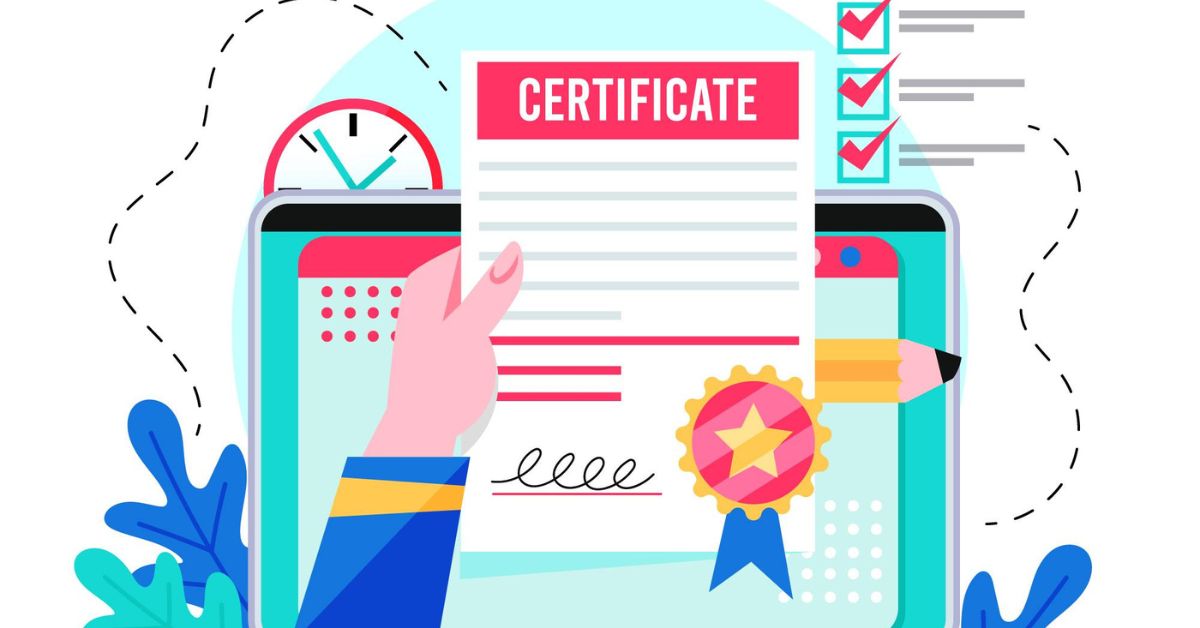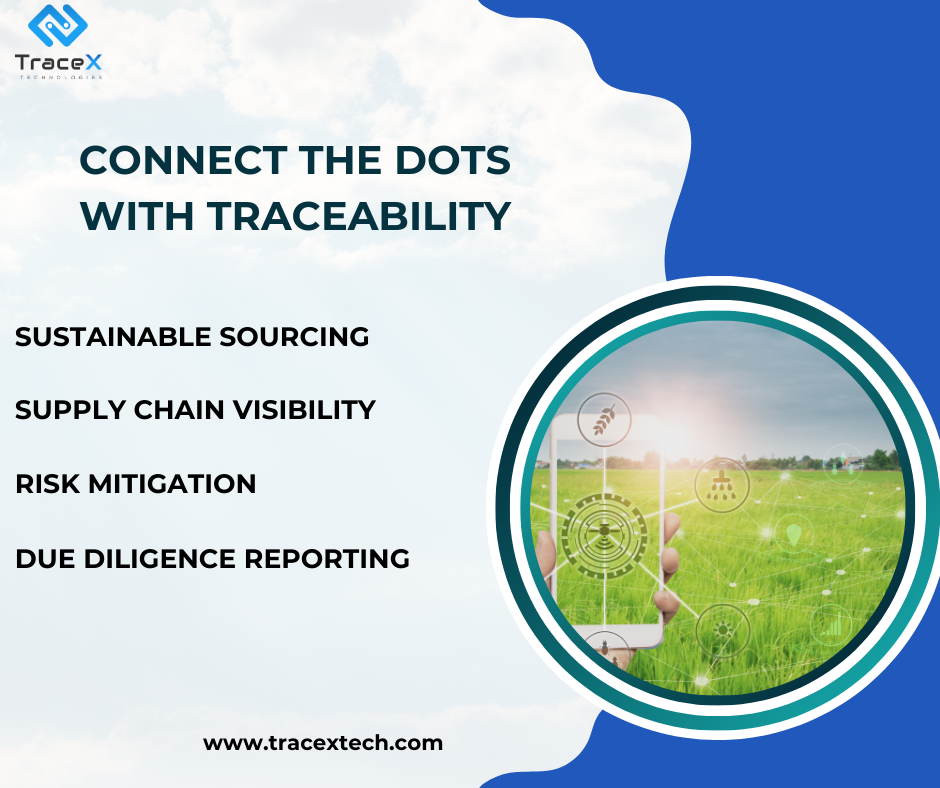Contact: +91 99725 24322 |
Menu
Menu
Quick summary: Discover the pivotal role of certification standards in navigating the complexities of implementing the EU Deforestation Regulation (EUDR). Learn how certifications ensure compliance, promote sustainable practices, and empower consumers to make informed choices for a greener future.

The role of certification IN EU Deforestation Regulation (EUDR), serves as a cornerstone in ensuring compliance with sustainable sourcing practices. As the EUDR aims to combat deforestation and promote responsible land management, certification schemes play a pivotal role in verifying the authenticity of forest-related products and confirming adherence to stringent environmental standards.
As of January 2025, companies, operators, and traders have approximately 10 months to implement the rules of the EUDR. This timeframe shifts discussions toward practical strategies for due diligence implementation and its ramifications, particularly for developing countries exporting deforestation-related commodities to the EU.
This blog explores how certification intersects with the implementation of the EUDR, examining its significance in enhancing transparency, accountability, and credibility within supply chains. Additionally, we delve into the collaborative efforts between stakeholders to navigate the complexities of EUDR compliance, highlighting the synergies between certification bodies, governmental agencies, and industry partners in achieving sustainable forest management goals. Join us as we unravel the multifaceted dynamics of certification and collaboration in driving forward the objectives of the EU Deforestation Regulation.
Deforestation poses a significant global challenge with profound implications for ecosystems, biodiversity, and climate change.
According to the United Nations Food and Agricultural Organization (FAO), agricultural expansion has led to the conversion of over 420 million hectares of forestland between 1990 and 2020. The European Union (EU) is accountable for approximately 10% of global deforestation, primarily driven by industries such as palm oil and soy production.
To combat this crisis, the EU implemented the EU Regulation on Deforestation-Free Products (EUDR) on June 29, 2023. This regulation targets seven key commodities deemed “forest-risk,” including cattle, cocoa, coffee, oil palm, rubber, soy, and wood derivatives.
Under the EUDR companies involved in the trade or export of these commodities must adhere to due diligence requirements to verify that their products are sourced sustainably and have not contributed to deforestation or forest degradation since December 31, 2020.
Sustainability certifications play a crucial role in enhancing supply chain transparency by providing third-party verification of a product’s environmental, social, and ethical attributes.
These certifications serve as credible indicators that a product has been produced in accordance with specific sustainability standards, such as responsible sourcing, fair labor practices, and environmental stewardship. By adhering to these standards, companies can demonstrate their commitment to sustainable practices and meet the growing demand for transparent and ethical supply chains. Additionally, sustainability certifications enable consumers to make informed purchasing decisions by providing them with clear and reliable information about the origins and production methods of the products they buy. Overall, sustainability certifications contribute to greater transparency throughout the supply chain, fostering trust and accountability among stakeholders.
Certifications drive positive change, promote ethical practices, and pave the way for a more sustainable future in farming.
Explore the transformative power of sustainability certifications
Voluntary Sustainability Standards (VSS) have emerged as potential tools to tackle the challenges associated with implementing the EU Deforestation Regulation (EUDR). These private standards, such as the Forest Stewardship Council (FSC) and the Roundtable on Sustainable Palm Oil (RSPO), require producers to adhere to sustainability metrics across economic, social, and environmental aspects. They set guidelines for sustainable practices in commodity production, aiming to prevent deforestation, protect high conservation areas, and uphold the rights of local communities and workers.
While the EUDR recognizes third-party certification schemes for risk assessment in supply chains, the precise role of VSS in supporting due diligence requirements remains unclear. However, VSS offer robust systems for data collection, traceability, and risk assessment, which could align with the needs of the EUDR. For instance, VSS utilize geolocation data requirements similar to those mandated by the EUDR, ensuring transparency and accountability in supply chains.
Furthermore, VSS’ chain-of-custody requirements and traceability systems help verify the sustainability and legality of products, reducing the risk of deforestation in supply chains. This not only aids in product differentiation in consumer markets but also facilitates verification procedures for competent authorities of EU Member States. Overall, VSS have the potential to play a significant role in supporting the implementation of due diligence obligations under the EUDR and promoting sustainable trade practices globally. While Voluntary Sustainability Standards (VSS) are valuable tools for assurance and risk mitigation in supply chains, they do not exempt companies from their due diligence obligations under the EU Deforestation Regulation (EUDR). This regulation represents a significant step in combating global deforestation, and VSS can support businesses in complying with its requirements while promoting sustainable practices.
Certifications and sustainability standards incentivize companies to prioritize sustainable sourcing, contributing to the preservation of ecosystems worldwide. As companies prepare to adhere to deforestation regulations, certifications can help transition towards a sustainable supply chain. Through this process, deforestation can become a thing of the past, allowing ecosystems to thrive once again.
Risk Mitigation: Certifications provide a framework for assessing and mitigating supply chain risks related to deforestation. By adhering to recognized standards, companies can identify and address potential compliance issues more effectively.
Credibility and Trust: Compliance with certifications demonstrates a commitment to sustainable and responsible practices. This builds credibility and trust among stakeholders, including consumers, regulators, and investors, enhancing the company’s reputation.
Market Access: Many consumers and retailers prioritize products with sustainability certifications, creating market demand for compliant goods. By obtaining certifications, companies can access these markets and gain a competitive advantage.
Legal Compliance: Certifications can help companies meet the due diligence requirements of the EUDR by providing assurance that products are sourced from deforestation-free supply chains. This reduces the risk of non-compliance and potential legal consequences.
Supply Chain Transparency: Certification programs often include requirements for transparency and traceability, allowing companies to track the origin of raw materials and verify compliance with sustainability standards. This transparency facilitates compliance with regulatory reporting and verification requirements.
Traceability technologies can ensure regulatory compliance, enhance transparency, and mitigate risks across your supply chain.
Discover the key to supply chain compliance.

Supply chain traceability solutions are instrumental in addressing the challenges posed by the EU Deforestation Regulation (EUDR). These solutions provide companies with the ability to track the movement of raw materials from their origin to the final product, ensuring transparency and accountability throughout the supply chain. By leveraging traceability data, companies can conduct risk assessments to identify potential compliance risks associated with deforestation and prioritize mitigation efforts. Real-time monitoring capabilities enable companies to detect and address deviations from sustainability standards promptly. Additionally, traceability solutions facilitate verification and authentication of sustainability claims, supporting companies in demonstrating compliance with EUDR requirements. Through comprehensive auditing and reporting features, companies can generate documentation to prove adherence to deforestation regulations to stakeholders and regulatory authorities. Overall, supply chain traceability solutions play a crucial role in enabling companies to navigate EUDR compliance effectively while promoting transparency, sustainability, and responsible sourcing practices.
TraceX’s blockchain-powered supply chain traceability solutions offer a seamless pathway for companies to navigate EUDR compliance effortlessly. By harnessing the power of blockchain technology, TraceX ensures end-to-end transparency and accountability across the supply chain, from raw material sourcing to the final product. With TraceX, companies can easily trace the origin of their products, verify sustainability certifications, and monitor compliance with EUDR regulations in real-time. The immutable nature of blockchain ensures that data is tamper-proof, providing irrefutable proof of compliance to regulatory authorities and stakeholders. Moreover, TraceX’s user-friendly interface and advanced analytics capabilities empower companies to conduct thorough risk assessments, identify potential compliance issues, and implement corrective actions swiftly. With TraceX, navigating EUDR compliance becomes not just a regulatory requirement but also an opportunity to showcase commitment to sustainability and responsible sourcing practices, earning trust and loyalty from consumers and stakeholders alike.
In conclusion, certification standards play a crucial role in facilitating the implementation of the EU Deforestation Regulation (EUDR). By providing clear guidelines and criteria for sustainable practices, certifications offer a framework for companies to demonstrate their commitment to responsible sourcing and environmental stewardship. Through rigorous assessments and audits, certifications ensure that products entering the market comply with the requirements set forth by the EUDR, thereby helping to mitigate the risks of deforestation and forest degradation. Additionally, certifications empower consumers to make informed choices, enabling them to support brands and products that align with their values and sustainability goals. As the global community continues to address the challenges of deforestation and climate change, certifications serve as valuable tools in promoting transparency, accountability, and positive environmental impact throughout the supply chain.
